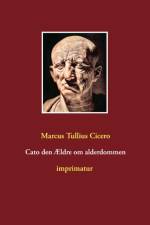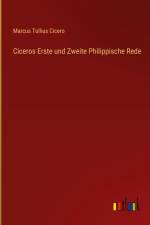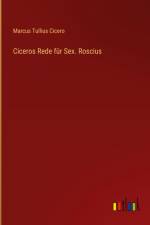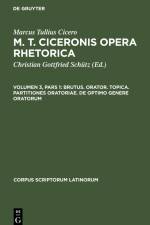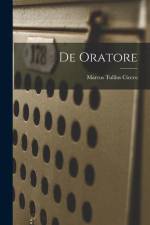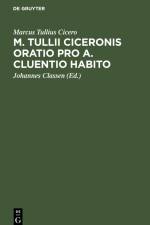von Marcus Tullius Cicero
23,00 €
Cicero is considered to be Rome's greatest orator and prose writer. His writing is some of the best classical Latin still in existence. Cicero introduced Rome to Greek philosophy and created the Latin philosophical vocabulary. This book contains two selections. Cicero's Brutus or History of Famous Orators was written during the end of the civil war in Africa. It discusses all the Roman and Greek speakers of any note at the time. The conference is supposed to have been held with Atticus, and their friend Brutus. The Orator was written shortly after and is a plan, or critical delineation, of what he esteemed the most finished eloquence, or style of Speaking. As the following Rhetorical Pieces have never appeared before in the English language, I thought a Translation of them would be no unacceptable offering to the Public. The character of the Author (Marcus Tullius Cicero) is so universally celebrated, that it would be needless, and indeed impertinent, to say any thing to recommend them. The first of them was the fruit of his retirement, during the remains of the Civil War in Africa; and was composed in the form of a Dialogue. It contains a few short, but very masterly sketches of all the Speakers who had flourished either in Greece or Rome, with any reputation of Eloquence, down to his own time; and as he generally touches the principal incidents of their lives, it will be considered, by an attentive reader, as a concealed epitome of the Roman history. The conference is supposed to have been held with Atticus, and their common friend Brutus, in Cicero's garden at Rome, under the statue of Plato, whom he always admired, and usually imitated in his dialogues: and he seems in this to have copied even his double titles, calling it Brutus, or the History of famous Orators. It was intended as a supplement, or fourth book, to three former ones, on the qualifications of an Orator. The second, which is intitled The Orator, was composed a very short time afterwards (both of them in the 61st year of his age) and at the request of Brutus. It contains a plan, or critical delineation, of what he himself esteemed the most finished Eloquence, or style of Speaking. He calls it The Fifth Part, or Book, designed to complete his Brutus, and the former three on the same subject. It was received with great approbation; and in a letter to Lepta, who had complimented him upon it, he declares, that whatever judgment he had in Speaking, he had thrown it all into that work, and was content to risk his reputation on the merit of it. But it is particularly recommended to our curiosity, by a more exact account of the rhetorical composition, or prosaic harmony of the ancients, than is to be met with in any other part of his works. As to the present Translation, I must leave the merit of it to be decided by the Public; and have only to observe, that though I have not, to my knowledge, omitted a single sentence of the original, I was obliged, in some places, to paraphrase my author, to render his meaning intelligible to a modern reader. My chief aim was to be clear and perspicuous: if I have succeeded in that, it is all I pretend to. I must leave it to abler pens to copy the Eloquence of Cicero. Mine is unequal to the task.

